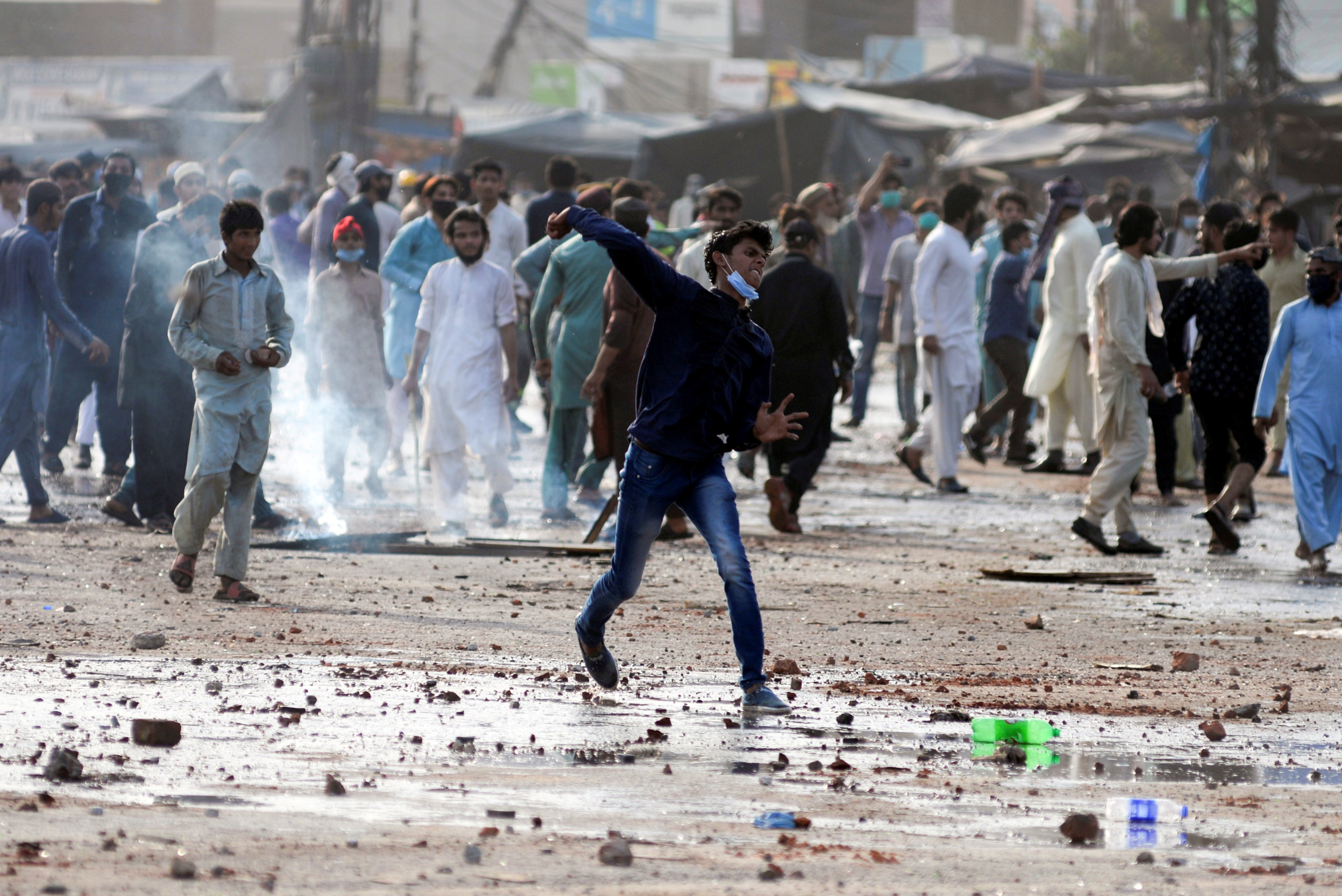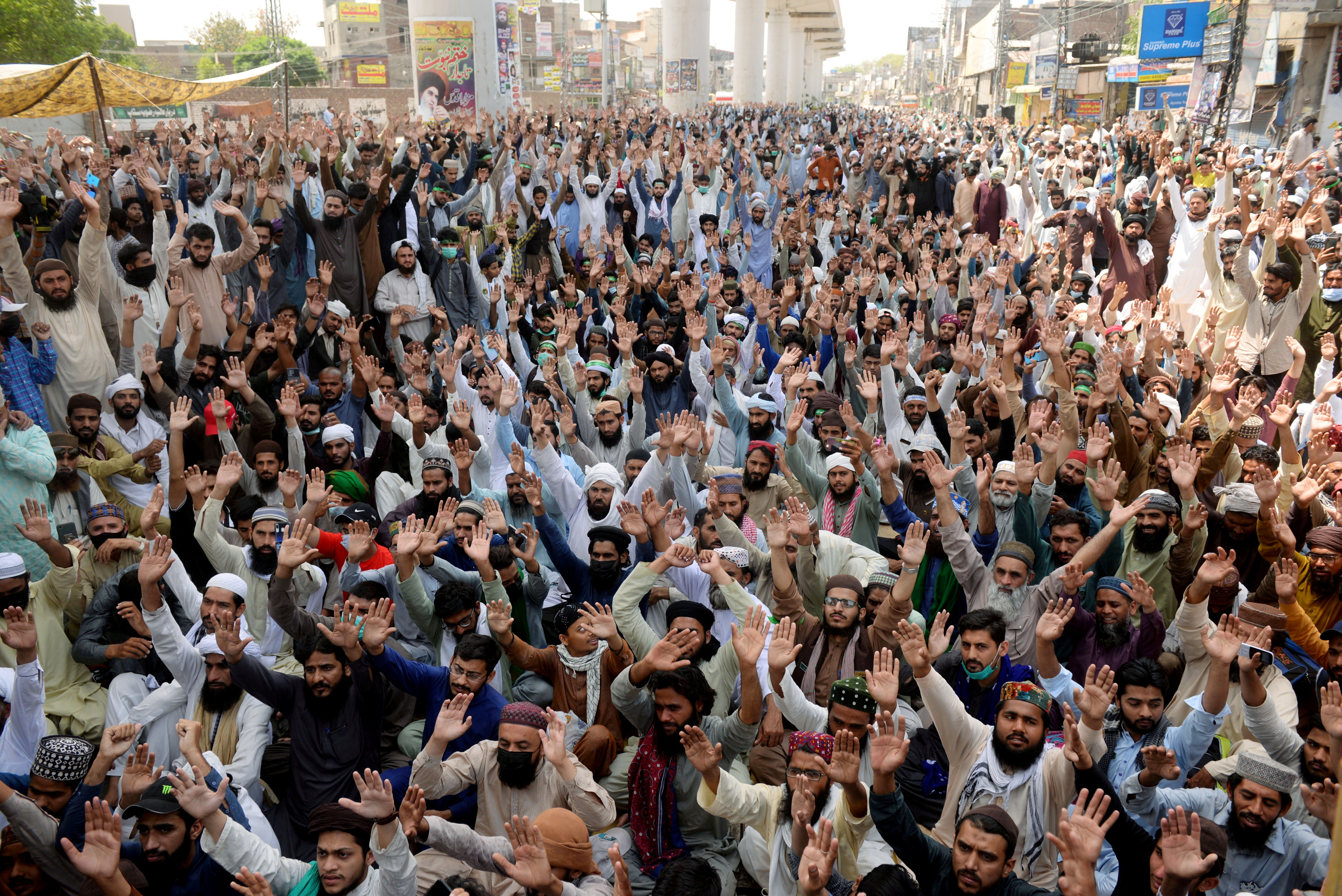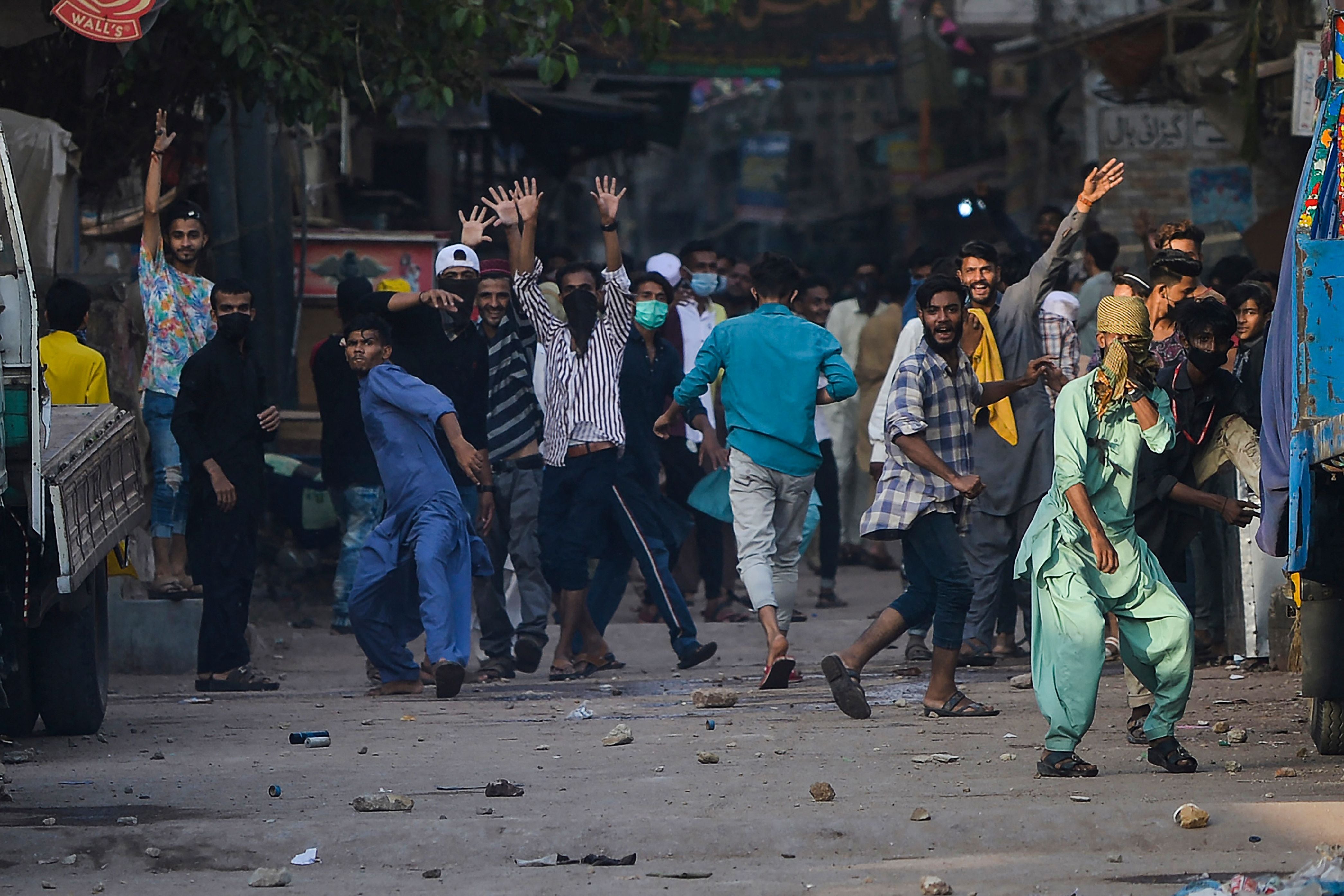Pakistan’s Imran Khan calls on West to criminalise blasphemy amid protests over prophet cartoons
Violent demonstrations come as relations between Paris and Islamabad worsen

Your support helps us to tell the story
From reproductive rights to climate change to Big Tech, The Independent is on the ground when the story is developing. Whether it's investigating the financials of Elon Musk's pro-Trump PAC or producing our latest documentary, 'The A Word', which shines a light on the American women fighting for reproductive rights, we know how important it is to parse out the facts from the messaging.
At such a critical moment in US history, we need reporters on the ground. Your donation allows us to keep sending journalists to speak to both sides of the story.
The Independent is trusted by Americans across the entire political spectrum. And unlike many other quality news outlets, we choose not to lock Americans out of our reporting and analysis with paywalls. We believe quality journalism should be available to everyone, paid for by those who can afford it.
Your support makes all the difference.Pakistan’s prime minister has called for Muslim nations to unite in order to pressure Western countries to criminalise insulting the Prophet Mohammed, as violent protests rocked the country amid an ongoing row over cartoons.
Appearing on national television on Monday, Imran Khan said he would lead a campaign to “convince” countries of the need to avoid offensive references, warning it could result in a “trade boycott”.
“We need to explain why this hurts us, when in the name of freedom of speech they insult the honour of the prophet,” Mr Khan said.
“When 50 Muslim countries will unite and say this, and say that if something like this happens in any country, then we will launch a trade boycott on them and not buy their goods, that will have an effect.”
He equated insulting the Prophet to questioning the Holocaust, which is illegal in several European countries, including Germany and France.
His statements came as violent protests hit Pakistan after France defended the right to show cartoons of the Prophet Mohammed. At least four policemen were killed and several taken hostage during demonstrations.
Mr Khan’s government has opened negotiations to quell the protests with hard-line far-right political party Tehreek-e-Labbaik (TLP), which has played a major role in fomenting anti-France sentiment across Pakistan.
France urged its all citizens to leave Pakistan temporarily following the riots, with the French embassy in Islamabad warning of "serious threats to French interests in Pakistan".
The embassy said on its website: “In this context, and because of the serious threats to French interests in Pakistan, French nationals are recommended to temporarily leave the country via existing commercial airlines.”


Since November, the TLP leaders have been demanding the expulsion of the French ambassador over the statements made by the French president, Emmanuel Macron, who strongly defended freedom of expression and the right to republish caricatures of the Prophet Mohammed.
The group gave 20 April deadline to expel the French ambassador.
Pakistan has strict blasphemy laws which mean insulting the Prophet Mohammed can lead to jail terms and even death. Depiction of the Prophet is considered a taboo in Islam.
Protests escalated in Pakistan after the government designated the group as a “terrorist” organisation and arrested TLP’s leader Saad Hussain Rizvi on 12 April. More than 200 activists have been arrested by police in subsequent clashes.
On Monday, TLP released 11 police officers it had abducted following a crackdown on police stations and four were killed, Pakistan’s interior minister, Sheikh Rasheed Ahmad, said.
Three rounds of talks have already been conducted and the next stage of talks will be held with the interior minister.
Join our commenting forum
Join thought-provoking conversations, follow other Independent readers and see their replies
Comments